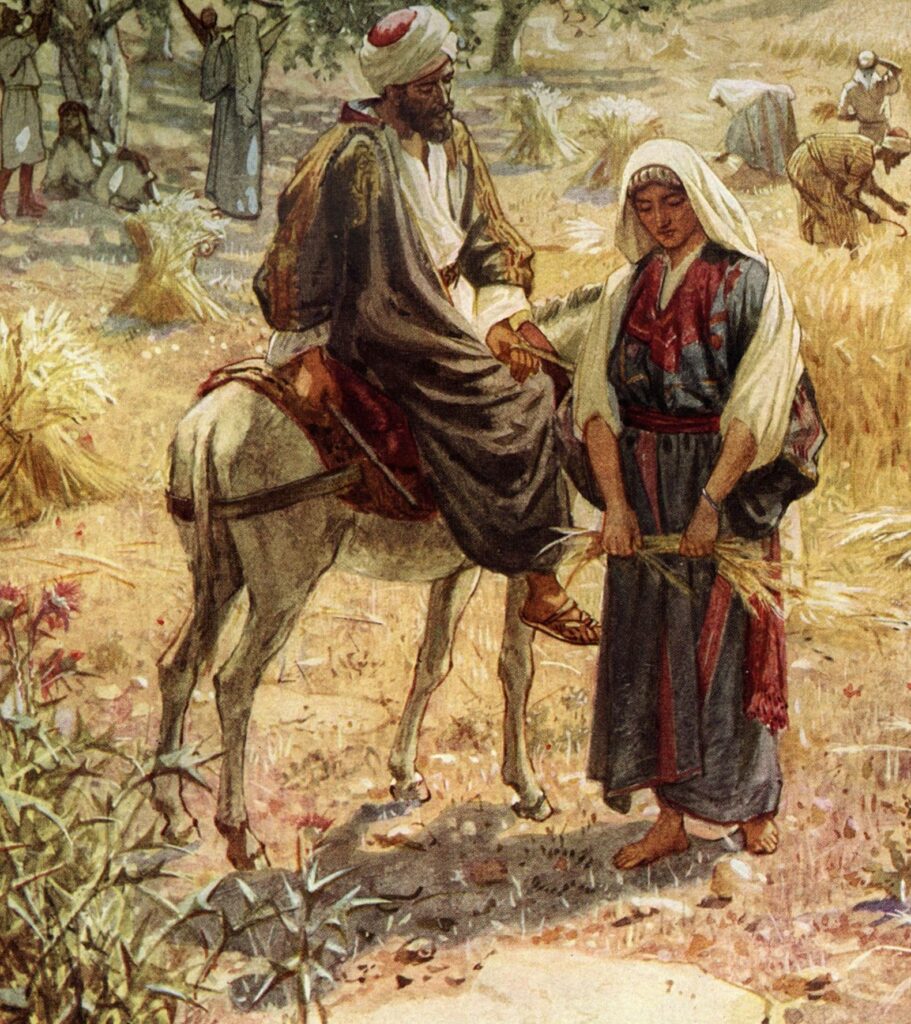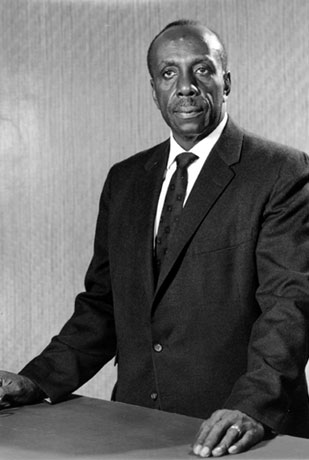The fruit of the Spirit is…kindness.
Galatians 5:22
In 2019, researchers at the University of Swansea in Wales conducted a broad experiment to determine which traits that single persons desired most in their mates.
The administrators gave each of the study’s 2500 participants a fixed number of “dollars” or “points”, they could spend designing a perfect life partner. The categories available were:
- Physical attractiveness
- Good financial prospects
- Humor
- Creativity
- Kindness
- Religiosity
- Chastity
- Desire to have children
While spouse-builders could allocate their points however they wanted, the researchers found that – irrespective of sex or culture – participants’ clear preference was for kindness.
In fact, the study noted that fully one-quarter of all of the “personality dollars” was committed to kindness, with the remaining three-fourths distributed among the other seven traits.
Kindness matters. But what does it imply? What does it ask?
If rented Blockbuster Video around 1993, you might remember a prompt to kindness stickered to your plastic VHS cassette: “Be Kind”, the tapes implored… “Please rewind”.

That’s all. That’s what it means to be kind.
So ends today’s blog post.
But of course, kindness implies more than just reversing your Dances with Wolves videotape. Kindness is a deep and costly practice. Paul’s word for kindness, the Greek noun chrestotes found in Galatians 5:22 is elsewhere translated gentle, easy, or good. It can mean benign. It can mean integrity. It can mean useful.
I guess the point here is that Paul isn’t aiming at laboratory exactness. While there are certainly moments in life that call for sharp theological precision, Galatians 5:22 might not be one of them. Kindness is something that you can more easily experience than you can define.
Mark Twain described kindness as “a language which the deaf can hear and the blind can see.” It is a way of expressing the all-surpassing power and love of the eternal God in our everyday interactions with other people.
That’s helpful, too. Let me toss out my own working definition: Kindness is sincere service that exceeds expectations.
What do I mean by the word “sincere”? Sincere means genuine. This is worth noting because the truth is, you can fake kindness.
You can help other people, and you can behave in ways that appear meaningful; but in reality, it’s just theatrical politeness. And what you are doing on the outside isn’t aligned with what you think and feel on the inside.
Most of us know how this works because most of us have taken a phone call in the middle of a heated family argument. You know how this goes, right? You’re upset at your spouse, or your kids are driving you crazy and you are in the middle of giving them a much-needed lecture when your phone rings.
One minute it’s like – “You children are driving me crazy, and this is the fourth time this week, and unless something changes…”
Then…Brring.
Your voice suddenly changes. Auto-tune activates, and you’re nothing but sweetness and light! “Oh, hi, Melinda! Doing great, how are you? Oh yes, it’s gonna be another hot one! Yeah, no, it has to be real butter. Yeah, the margarine gets too runny. Yes, we are excited, too, kiddo. See you then. Bye now!”
Then, as soon as the phone hangs up, you resume the regularly scheduled inflection:
…and unless something changes, young lady, you will face severe consequences and you do not want to know what they will be like!
Some of us are approaching Academy Award-level skill with this stuff. (Moms are best at it. There are some ladies who can go up two friendliness octaves and not skip a beat.)
But that’s theater, right? That’s not spiritual fruit.
But in point of fact you can do worse than that. Because sometimes you can actually make it look like you are serving other people while you are actually out for yourself.
Inauthentically noble gestures are powerful tools for manipulation. You can act selfless now as part of a long game to grab power later. The time-share presentation always begins with free appetizers, but it’s not because the fruit of kindness grows strong inside the condo developer.
Kindness is the outward expression of inward compassion. The two realities align.
But kindness also involves exceeding expectations.
In other words, there is a kind of baseline human decency that is expected of everybody. There is a sort of reasonable fairness and courtesy that every person deserves. That’s not what we are talking about.
Kindness exceeds expectations. This is the moment after which you think She didn’t need to do that for me, but she took the time and went the extra mile to bless me. Or He didn’t need to send me that text, or write me that note, or pay for that meal, but he did, at that just made my day all the more special.
That’s exceeding expectations.
Jesus talked about that, remember? He said that if someone demands you walk a mile with them, stroll on for two. If they ask you for your coat, give them your sweater also.
Sincere service that exceeds expectations. You don’t just put a check in the box, you don’t just do the minimum, you train your energies and your time on blessing another person that God has placed into your life at that moment.
With that, let’s talk applications. How can you practice kindness in new ways? How can you dish up the fifth fruit? Here are three ideas:
Give less advice, and pay more attention.
Advice isn’t the same thing as attention. One of those can be given away and one must be paid for.
Advice is the old green couch on the street corner with the cardboard sign on it: FREE. It smells like Cheetos and it’s been rained on twice. There’s lots of that going around – advice that wasn’t sought and doesn’t provide much help.
Attention, on the other hand, costs something. It requires time and space and energy. Attention is still on the showroom floor and comes with a price.
It’s easy to tell people what you think they should do. But it costs more to open yourself to people who will draw down on your resources.
This one can be an issue for me. I am slow to pay attention and quick to give advice. I want to be a solution-finder. Tim the fix-it guy. If you’ve got a problem, yo, I’ll solve it. Check out the hook while my DJ revolves it. (That was Vanilla Ice, 1990.)
But most people aren’t looking for problem resolutions. They don’t want a list of pro-tips. They want a ministry of presence. They are looking for eye contact, head-nods, and follow-up questions. They want to be understood and really valued. People want to be seen and recognized with a kind of attention that means putting down the iPhone and listening.
Practice Generosity.
Kindness means being willing to turn your personal privileges into opportunities for others to flourish. Practiced sincerely, generosity is a beautiful expression of kindness. God loves it when we leverage our wins to bless those who may have missed out.
Ruth is one of the shortest books in the Bible. It’s a story that opens with two young widows showing kindness to their mother-in-law. But the drama really rises when a generous farmer named Boaz shows kindness to one of those widows, Ruth, by allowing her to glean wheat in his field.

The gleaning stuff was expected of a man of means. But Boaz went far beyond the legal requirements. He provided Ruth extra grain and meals with the other workers. He used the blessings God had given him to provide for the needs of the poor persons in his community.
What privileges do you have? What blessings do you possess? How has God rewarded and multiplied your efforts?
Got some answers? Now, ask yourself: How would God have me to steward these blessings? Who can I give them away to? And – if you really want to be sincere – you might ask “How can I do this in such a way that I will never get credit for my generosity?”
There are many needs out there. How can your kindness overflow into the empty and dry and hungry places in the lives of others?
Be Loyal.
Finally, kindness expresses in loyalty. Loyalty means hanging in there with people even after they have burned through a bunch of chances. Kindness is practicing enduring mercy.
Ruth’s story folds a vision for this kind of long-form commitment into the Hebrew word chesed. Chesed is a word that’s hard to pronounce and may be harder to translate. It means something like “covenant grace” or “resilient faithfulness.” It’s about being loyal to people long past the point at which it is kindness is deserved and long past the place where it pays dividends.
The Old Testament book of 2 Samuel records the story of a handicapped man named Mephibosheth. As a baby, Mephibosheth had been dropped by his nurse and was paralyzed for the rest of his life. He was a burden to others. If he was alive today, Mephibosheth would have been shipped off to a special-needs house a thousand miles away. Just get the Medicare paperwork filled out, set him up with a FaceTime account, and move on with your life.
But in the Bible, Mephibosheth ends up taking his meals in the royal throne room. Why? Because King David had entered into a pact of loyalty with Mephibosheth’s father Jonathan. And long after Jonathan was dead and gone, David sought out people from Jonathan’s family to serve in order to honor that commitment.
The Bible reports the messenger coming to David and saying, “Yeah boss, there is one guy left, from Jonathan’s family. One person left to serve. But…ehh…he’s lame”- in other words, he’s going to be more trouble than he’s worth.
But David said – Out of chesed to his father, Mephibosheth eats here. We’re going to find a way to make this work.
And he did. The lame man had a seat at the king’s table. Loyalty long past what is required.
Here’s just one more way that this makes kindness counter-cultural: Lots of smart people today will tell you that if there are people who drain your energy – people who just knock you off your stride and keep you from living your best life – you should move on from those kinds of people. Spend time with people who fill your tank. Who encourage you. Who make you better!
But that’s really not kindness. That’s opportunism. Kindness is about answering the hundredth email on the same topic from your co-worker. It’s about forgiving your neighbors’ kids after they have – once again! – ridden their bikes through your newly seeded lawn. It’s about making time to get over to the nursing home and caring for your grandma even though there are more pleasant ways to spend an evening.
Kindness is loyalty beyond expectations. You could get away with doing less, and nobody would fault you for it. But the Holy Spirit keeps regenerating a desire to serve sincerely.
How many of the vast, cultural issues of our time could be headed off with relentless, expectation-exceeding kindness?
This would mean means kindness to people who disagree with us. Kindness online. Kindness in public discourse. Kindness across ethnic lines. Kindness across the political aisle. Kindness to people of other religions.
Dr. Howard Thurman was a prominent theologian and academic dean who became a key mentor to Dr. Martin Luther King Jr. In a sermon he once preached on Romans 12, Dr. Thurman explained how he had seen this happen in his mother’s life: He explained:

“The best example I have is one from my mother. I was born into a black family of sharecroppers that lived on a farm. Our home backed up to the home of white sharecroppers. A fence separated the two backyards. Soon after we moved in, our white neighbor cleaned out his chicken coop, throwing all of the manure over the fence into our backyard. My dad and I were furious at this great insult, but my mother said, ‘No, you let me handle this. I know what to do.’
“She left that pile of chicken manure out there in the July sun, the August sun, and the September sun to rot. In the fall she used a potato fork to dig up a plot of earth in our backyard, working that chicken manure into the soil. Then in early spring, she turned the ground all over again and then planted seeds. About the first of June, my mother took me by the hand and told me to come with her out to the garden. We harvested fresh flowers and vegetables and put them in a basket.
“The white sharecroppers who lived in the other house behind us had never spoken to us. My mother walked around the fence and up on the front porch of the neighbors’ house. She knocked on the door and said to our neighbor, ‘You were so kind to share your chicken manure with us last summer that I wanted to share our vegetables and flowers with you.’
“Our families became steadfast friends.”
The Bible says that kindness leads to repentance. Kindness leads to witness. It leads to reconciliation. It breaks barriers.
It looks so out of place in our world. But the Spirit’s fruit is intended to transform the world, not to mimic it. And so, people of the Spirit, let us practice sincere service that exceeds expectations.


